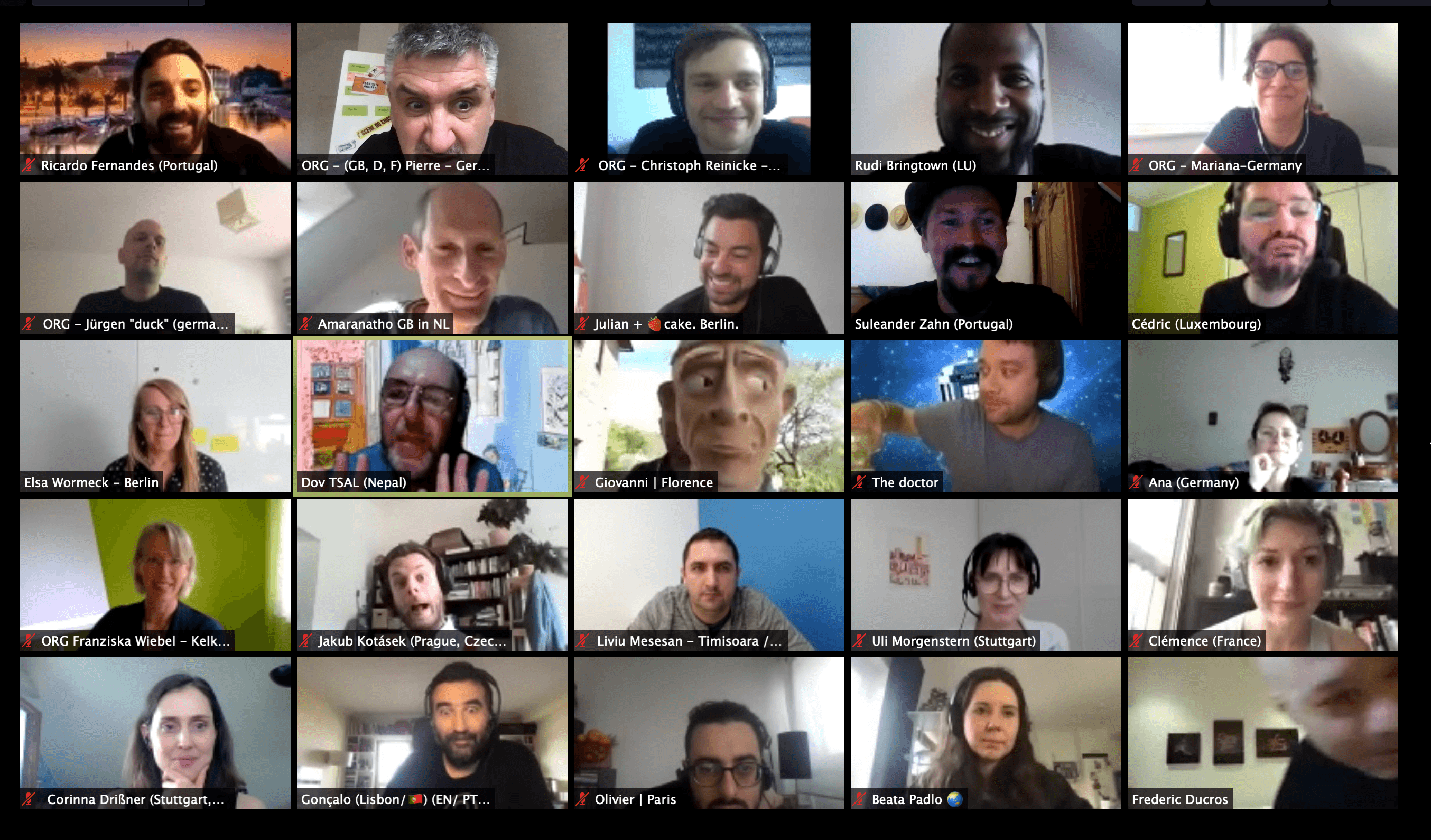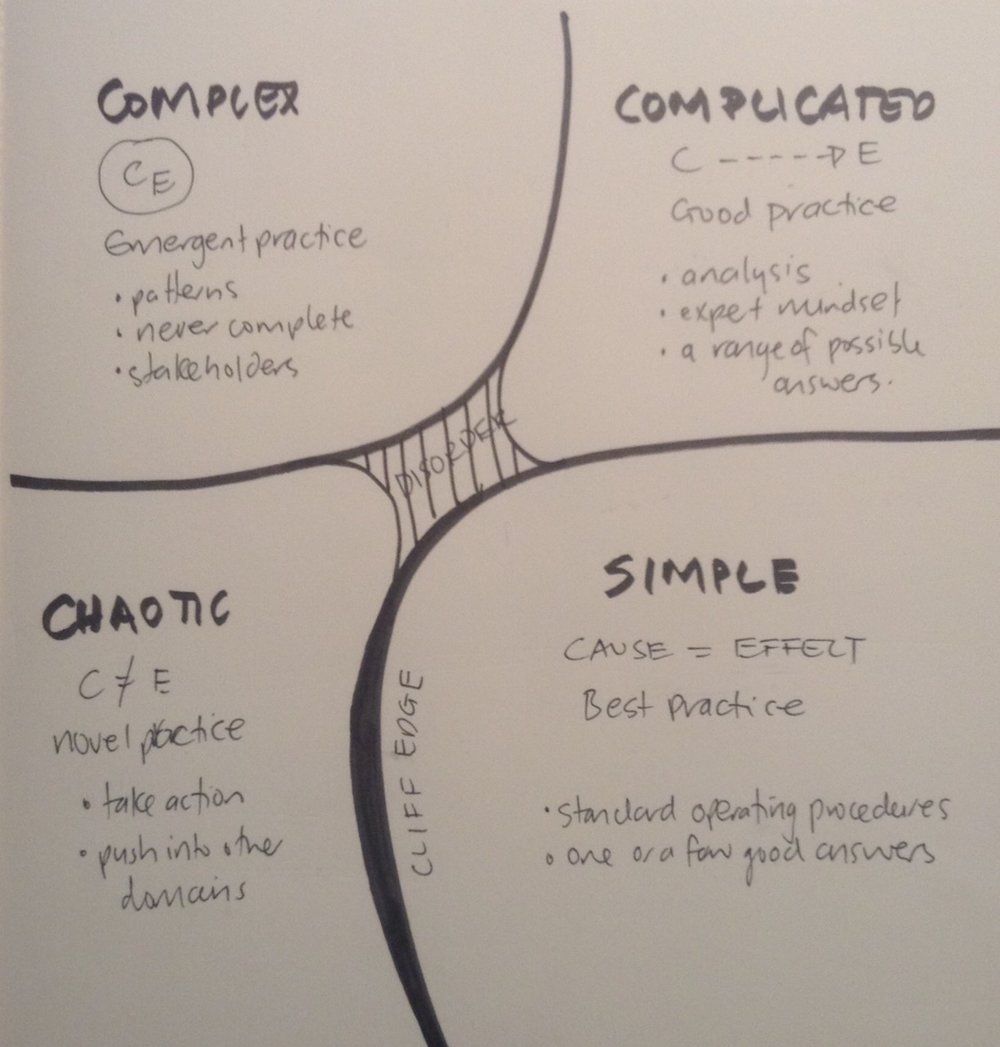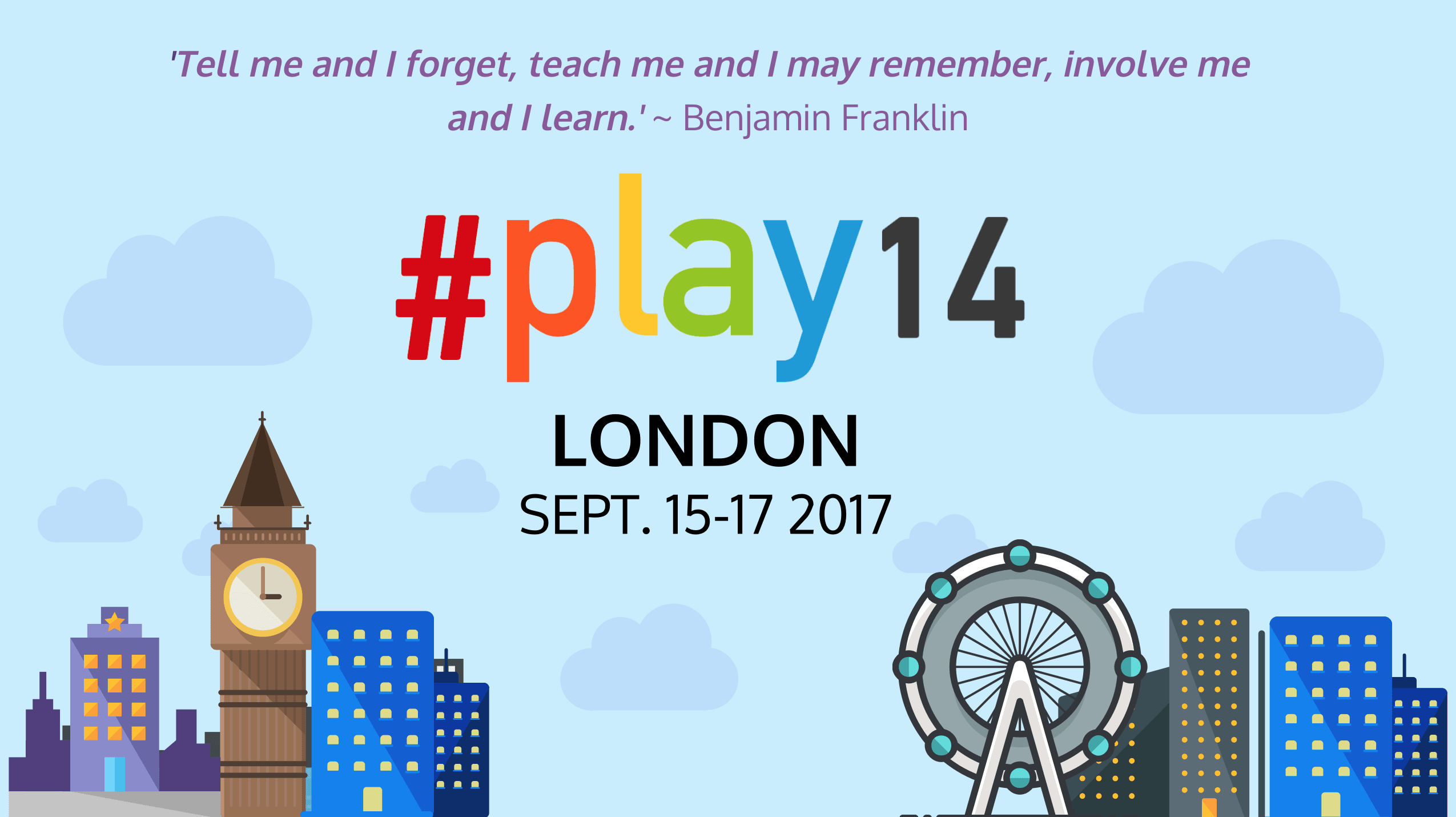
First online event ever
Our very first online #play14 event
Since the beginning, #play14 has been designed as an event where people would meeting in real-life. Gathering people around and being able to have physical contact seemed important to make most of the games we knew work, and reinforce the learning experience. Then some of us said that they wanted to start experimenting with a digital format, but no one really took the time to make it happen.
Then came the COVID-19 pandemic. 2020 was supposed to be our most intense year yet, with a lot of events, recurring and new, that had been planned from March to July. One by one, we had to cancel all the events. Even though it was the safest and most reasonable decision, it was not an easy one. It left all the organizers with a bitter feeling of frustration.
Then the team from Stuttgart decided to go all-in and to try out the digital format. The first online #play14 event ever was hosted using Zoom and Miro on May 9th, 2020. I would like to extend my gratitude to the team who made it happen. The endeavor was not easy, especially since no one had done that before, and since that team was new to #play14 organization. Congratulations to Christoph Reinicke, Franziska Wiebel, Jürgen Rambo, Uli Morgenstern and their mentor Pierre Neis. You did a great job guys.
It was great to see the 60+ players, regular or new, from all around the world, gathered in a massive Zoom session. We had people from Europe, from Asia, from Australia, and even from North America. It was fun to play together again, and we even managed to turn some technical difficulties into something to laugh of rather than a problem.
That being said, there were a few things to learn from this first experiment. Here are the lesson learned, that I would like to share.
As a host
- Provide a single location for people to gather
- Use an online meeting software to provide one place where people can talk and see each other, the rest is optional
- That tool should provide a way to split the session into breakout rooms, like Zoom or Qiqochat
- There is no such thing as One tool to rule them all. Accept the fact that all tools are flawed and live with it
- When running an open space in Zoom
- Leave the breakout rooms open at all time
- Allow people to move between breakout rooms, as in a real life open space, by setting everyone as co-host
- Don't summon people back by closing the room, but instead make them aware of the timebox, by using the messaging system as the host and having a visible timer like in Miro
- When using a virtual board
- Using a virtual board like Miro or Mural is an option
- Prepare a simple board! The simpler the better
- If it's too complicated, people will get lost and fight with the tool instead of having fun
- Don't put too much focus on a digital board, as it kills people interactions and creativity
- Use a tool like Trello for the market place
- Don't try to make a virtual marketplace like in a real event with a virtual board and stickies
- Instead, make a great board in Trello
- Use one column as a parking lot and one column per timeslot
- Most people already know Trello and if they don't, the learning curve is very gentle
- The simpler the better, right!
- If you need voting or timers, Trello offers a great Power-Up called Leaner Coffee
- Be inclusive
- Remember that you have people from all around the world
- Not everyone will eat at the same time
- Display time slots for the different time zones of your participants
As a game facilitator
- When facilitating a game online, focus on the learning objective, not on the format
- The most important part for the game is what you can learn from it, not the game format itself
- Focus on the learning experience by embracing the constraint of the digital world
- Be creative
- Debriefing continues to be a must to emphasize learning, so keep time at the end for a debrief session
- Prepare your debriefing questions in advance, using the debriefing cube
- Adapt the game to the digital world
- Don't try to reproduce online the exact same experience as in real life
- Just accept the fact that a digital game will never be the same as the real deal
- Turn that into an opportunity instead
- When adapting a game that you know from the real life, don't feel constrained by the format of the original game you want to adapt
- Most probably, you won't be able to make it work with the same game mechanics and team dynamics
- Keep that in mind when you re-design the game for online
- Who cares if the digital version differs from the in real life version as long as the learning experience is there and it's fun
- Always come prepared
- Making things look simple in the digital world requires a lot of preparation
- If you are using a tool, know it well
- Rehearse, rehearse, rehearse
- Experiment, experiment, experiment
- Don't let the tool get in your way
- The simpler the better
- Don't spend too much time explaining the tool. You shouldn't need to.
- Make the game/facilitation simple enough so that people don't need to learn the tool
- Make learning the tool part of the game experience

